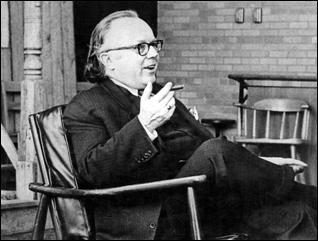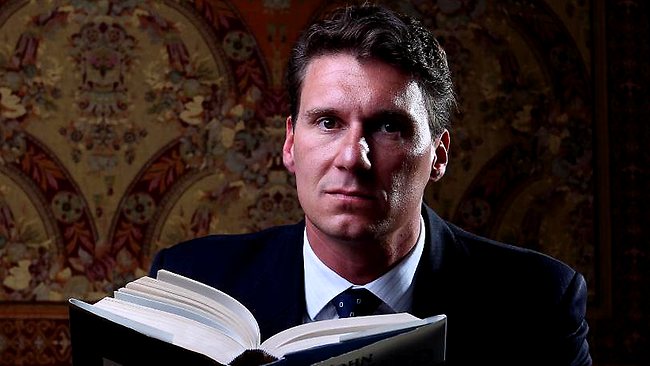Introduction
Anyone who has lived in Australia for even one day would notice how fiercely egalitarian this culture is, or how everyone strives for equality at every level and at every cost, be it on the basis of race, socioeconomic level, gender or even sexual preference. Many have said that Australia is one of the most egalitarian nations in the world, and that this egalitarian spirit is so culturally ingrained in the Australian mentality. In this essay, after defining the key concepts, I shall show how Australian egalitarianism is an oppressive force that pervades our national psyche at the socio-cultural, the educational and the linguistic levels.
Definitions
Egalitarianism, which is derived from the French word égal, is a trend of thought whereby all people should be treated as equals on the basis of religion, politics, economics, social status and culture. Consequently, in political parlance, egalitarianism is a doctrine which dictates that all people should be treated as equals and have the same political, economic, social and civil rights, and that all socio-economical inequalities or special status should be removed.
A key concept in this essay is ‘Tall Poppy Syndrome’. The general consensus in the literature is that ‘tall poppies’ are individuals who are richer, more successful or more famous than the other ordinary people. According to the Australian National Dictionary, a tall poppy is “a person who is conspicuously successful, frequently one whose distinction, rank or wealth attracts envious notice or hostility.” The Penguin Book of Australian Slang describes a ‘tall poppy’ as a “very important or influential person, or person with status, often held in contempt by others who try to bring about this person’s downfall or ruin.” (Peeters: 2004). According to Peeters, a ‘tall poppy’ is someone who is proud and boastful as a result of success or riches, not just a high achiever, but even he admits that there is some disagreement on this. I have found, from personal experience, that some people assume that if someone is rich and successful, he is naturally proud of it, and therefore deserves to be ‘cut down to size’.
What exactly is this salient consequence of the Australian egalitarian spirit? The term ‘tall poppy’ refers to Livy’s History of Rome (Book 1). In Livy’s account, Sextus Tarquinius consulted his father Tarquin the Proud for advice in ruling Gabii, where he had risen to power. Without a word, Tarquin went into his garden, took a stick and swept it across his garden, cutting off the heads of the tallest poppies that were growing there. Sextus understood that he had to put to death all the prominent people of Gabii, which he did. Whether this is the real origin of the Australian concept or not, the idea of this story is clear: Australians like to keep everyone equal, at the same level. By criticising the ‘tall poppies’ (the high achievers who make them feel inferior), or causing them to be humiliated or lowered in social rank, the average Australian feels a certain sense of self-worth.
Akin to the Tall Poppy Syndrome is an equally distressing cultural symptom, known colloquially as the ‘cultural cringe’. This means that Australians feel that their culture might be inferior to other cultures, but that this is unjust, and that other cultures have to be just as inferior and mediocre as theirs. This is why Australians often find Americans irritating, because they seem to strive for excellence in all fields, and consider themselves to be endowed with a special mission from God (Convict Creations: undated).
Origins
According to the prevailing theory, Australia’s strong egalitarian sentiments originated in its founding era, when the convicts were so cruelly treated and deprived of their basic human rights by the governors and other authorities. In the convict system, people in positions of superiority hardly cared for the material or spiritual needs of the criminal class that constituted the vast majority of the population. Despite this numerical dominance, members of the convict class were simply unable to aspire to civic positions that were reserved for the Exclusives (non-convicts), who protested against giving the convicts equal rights on the grounds that it would be ‘rewarding criminality’. Even the children of convicts were denied equal rights because the authorities held that children of convicts would show “the same proclivity to crime as their parents had deemed to have shown.” (Convict Creations: undated)
So not only could convicts not hold official positions, they could not even obtain the land grants offered to the free immigrants. Furthermore, if a convict were promoted to the rank of freeman, or overseer, who could order or flog other convicts, he was immediately hated and treated as a traitor to his friends (Convict Creations: undated).
With time, this egalitarian spirit was worn as a badge by convicts, who may not have had power, education or wealth, but they had the belief in the equality of humanity. It was these values of egalitarianism that won out in the end, and have become the most definitive values of Australia. Australia became an egalitarian society because its second class citizens refused to accept that they were in any way inferior (Convict Creations: undated). Ironically, this fervent belief in an equality caused by social inferiority makes Australians believe that they are superior to other nations, especially the United Kingdom and America, who openly appear to be superior. It is a case of ‘I am better than you because I am humbler than you’.
Implications
Socio-Cultural
In Australia there exists a kind of paradoxical sense of patriotism. Some Australians on the international scene are very critical and negative about their country and feel no shame in this. They are afraid that the other nations might think that Australia is superior in some way, so they ‘cut their country down to size’ to avoid being accused of patriotic pride. Perversely then, if any foreign country or culture (e.g. the United States) exerts herself as superior, Australians will suddenly rise up and defend their country and try to bring the other country down (Convict Creations: undated). This has the Tall Poppy Syndrome written all over it.
Social esteem is a problem for the average Australian, due to the Tall Poppy Syndrome. In a culture in which everyone in high positions is preoccupied trying to appear lower in status and equal with the common man, there are consequently very few strong social identities with whom Australians can acceptably associate themselves or aspire to emulate. If an Australian assumes a prominent social position, or tries to make a name for himself, it will be interpreted as a sign of failure, as if he had to hide behind a title or badge because he is otherwise deficient. (Convict Creations: undated)
The Australian ‘hero’ is generally an unknown ordinary fireman, policeman or ambulance officer, or any man on the street who does a favour for his ‘mate’, or gets him out of trouble. Otherwise, in Australian history, it seems that the most loved hero is Ned Kelly, a notorious highway robber who was arrested and hanged. It appears that Australians generally appreciate and identify with ‘the underdog’, someone who was born underprivileged and lived his whole life oppressed and desperate to survive against all odds. This is reminiscent, of course, of the convicts who helped to settle this nation. It is also curious to notice that Australia’s favourite song, its unofficial national anthem, Waltzing Matilda, is all about a swagman who steals a sheep and kills himself in the billabong rather than be arrested by the authorities.
In spite of all this, Dror Poleg argues that the Australian ideology of egalitarianism is just that: an ideology (Poleg: 2004). He cites Associate Michael Gilding who states that social mobility in Australian society is not more remarkable than in any other European or North American country, and that most of the social mobility is between adjacent positions and jobs of a similar nature. He goes on to say that the legend of Australian egalitarianism was established in its early days as a penal colony, even in the face of an Anglo-Christian exclusion policy in the 1850s and its Eurocentric vision dating up to the 1970s, not to mention its patriarchal culture which prevailed until the middle of the twentieth century. In other words, the egalitarian ideology has little to do with real equality in Australia’s modern multicultural society. In fact, Australia is second only to America in its unequal distribution of wealth. In other words, Australian egalitarianism derives its significance from the fact that Australians believe that they (still) live in an egalitarian society and still hold this concept of egalitarianism close to their hearts. According to Peeters, if egalitarianism (as made manifest by the ‘Tall Poppy Syndrome’) is a myth, then it is a myth promulgated in the media by journalists, reporters, readers and interviewees.
Educational
In most classrooms in Asian, European or Middle-Eastern countries, a teacher stands in front of a class delivering skills and knowledge that students are expected to assimilate. But not in Australia, where, with the exception of some universities, there is more group work and classes are more student-centred. This means that students are not supposed to learn from the teacher as much as from other students who bring their knowledge and experience to share. This rationale seems at first glance to be productive and beneficial, but it may just be because teachers are afraid of being like dictators or school ‘masters’ telling pupils what to do (Convict Creations: undated). Furthermore, pupils are no longer called pupils, they are now ‘students’, on a level with university students, or ‘clients’ who demand a service from their ‘service providers’. This preference can also be attributed to a defence against feelings of inferiority and the merciless ‘Tall Poppy Syndrome’.
Before someone at any age can be educated, he needs to admit to himself that he is deficient in some way and that others socially higher than he has skills or wisdom that he does not possess. Since the average Australian does not like to admit this, he does not like to attend classes, unless they are perhaps student-centred, so that he feels that he has as much to offer as any other student, or even the teacher (Convict Creations: undated). You see how the traditional educational hierarchies are turned on their head in Australia, in order to placate the vehement egalitarian spirit. Gary Hull of the Ayn Rand Institute states:
Egalitarianism, which claims only to want an ‘equality’ in end results, hates the exceptional man who, through his own mental effort, achieves that which others cannot […] In an effort to ‘dumb down’ all students to the lowest common denominator, today’s educators no longer promote excellence and students of superior ability […] Talent and ability create inequality […] to rectify this supposed injustice, we are told to sacrifice the able to the unable. Egalitarianism demands the punishment and envy of anyone who is better than someone else at anything. We must tear down the competent and the strong – raze them to the level of the incompetent and the weak […]
This is a clear description of Australia’s ‘Tall Poppy Syndrome’ in connection with egalitarianism, or the ‘fair go for all’. Peeters believes that the ‘Tall Poppy Syndrome’ is manifest as early as primary school, where pupils who know all the answers or show too much enthusiasm for learning are quickly and mercilessly “cut down” and ostracised by their classmates. This naturally continues all through their educational career. It is “almost a crime” to appear too smart amongst one’s peers, despite the fact that schools often proudly parade their sporting, academic or musical high achievers (in order to win support from the government, perhaps?). Even some teachers feel threatened by unusually gifted children and persecute or ridicule them in front of the class! One can imagine the detrimental psychological effects that bullying by other children, and especially by teachers, can cause later in life. At best, they will learn to conform and become mediocre and to criticise those who are superior. Even if they succeed in an area, they are under pressure to “downplay” their achievements in order not to be bullied or harassed. On the surface, the ‘Tall Poppy Syndrome’ appears to encourage modesty and humility, but there is something quite sinister in this enforcing of humility and pressuring high achievers to ‘hide their light under a bushel’.
If this were not bad enough, Australians are also prone to ridicule education and the abilities of teachers. A popular song comes to mind, sung by the band Pink Floyd, in which a class of pupils chants to the teacher, “Hey, teacher, leave us kids alone! All in all you’re just another brick in the wall!” Although the singers are not originally Australian, this song has been quite popular here, judging by the frequency with which it is still played on the airwaves.
Linguistic
In comparison to other English speakers, Australians are perceived to be far more informal, and might use the same casual language to address an employer, an elderly person, a friend or a vagabond on the street. Foreigners who observe Australians either on home soil or from the media abroad, often feel that this Australian tendency of addressing people of all levels in the same way as extremely rude. In many other cultures, European, Asian or Middle-Eastern, it is simply inconceivable that one would address a person of high status in the same way that one would address a person of low status (Convict Creations: undated). In former times, gentlemen and ladies were addressed as ‘Sir’ or ‘Madam’ if one did not know them, and not as ‘mate’ as Australians are wont to do.
Furthermore, the Australian dialect of English, unlike the British one for example, shows barely any socio-economic variance in pronunciation. There are three Australian accents: Broad, General and Cultivated. The Broad accent is commonly used by men more than women (although women are starting to use it more frequently these days) because of a belief that this accent is quintessentially Australian, down-to-earth and friendly. People who speak like this are usually tradesmen, men from the country and those who wish to be seen as such, like Paul Hogan or the late Steve Irwin; the General accent is used by the vast majority of Australians and is perceived as a neutral accent by most of them; the Cultivated accent, which used to be the norm and the requirement for all broadcasters, is commonly used by people who were educated in England or Europe, or who attended private school. It sounds extremely close to Received Pronunciation, the standard pronunciation used in the south of England, or the Queen’s English.
In Australia, accent choice does not vary according to socioeconomic status or region, as it does in other countries, but according to ideology and gender (Convict Creations: undated). For example, the ex-Prime Minister Robert Hawke (informally known as ‘Bob’), the Leader of the Opposition Antony (‘Tony’) Abbott and the present Prime Minister Julia Gillard, who all had high-level tertiary education and spent a considerable amount of their lives in Britain, not only speak with the same accent as tradesmen, but even like to be affectionately known by their first names or nicknames. In England and most other countries in the world, it would be unthinkable for a political leader to do this. Based on what we have considered in this dissertation, Australian political leaders try to downplay their high status (in fear of being victims of the ‘Tall Poppy Syndrome’) and appear to the public as ordinary citizens who have had a hard life until their rise to power. Thus, they wish to convey, by their accent and informal language, that they are just average hard-working people like everyone else.
Conclusion
Egalitarianism has always been a foundational tenet of Australian culture, from the days of the First Settlement by the convicts until the present day. This is evident throughout Australian culture, at a socio-cultural, educational and linguistic level. This can be seen in some of its sinister manifestations, i.e. the ‘Tall Poppy Syndrome’ and the ‘Cultural Cringe’, as well as its seemingly more positive aspect, ‘the fair go for all’. I myself have lived for nearly four decades in this country and I can definitely vouch for this negative spirit of egalitarianism that oppresses everyone who desires to succeed or aspires to anything above the average and mediocre.
Why does egalitarianism have to be negative? If Australians desire equality so much, why do they have to ‘cut down the tall poppies’? Why not instead ‘raise the small poppies’? Why is there no ‘Small Poppy Syndrome’, whereby people who are inferior or not performing at a high enough level are encouraged to excel, if not in the same domain, then some other domain in which they show talent? Is this not a better equality than cutting everyone down to the lowest common denominator?
– Emile N Joseph
The author teaches the English language to adult migrants and is passionate about all things linguistic. He is also a serious conservative at heart, who treasures the beauty, the poetry and the gallantry of yesteryear. He is happily married with two young children in Sydney.
Selected Sources
- Unknown author, “Egalitarianism in Australia” ConvictCreations.Com <www.convictcreations.com> (accessed: 1 February 2013)
- Peeters Bert, “Tall Poppies and Egalitarianism in Australian Discourse: From Key Word to Cultural Value” English World Wide No 25 (2004)
- Gary Hull, “Egalitarianism: The New Torture Rack” Ayn Rand Institute (11 January 2004) no longer available online, cited at Wikipedia (accessed: 1 February 2013)
- Dror Poleg, “The Poppy and the Pauper: A Short Overview of Australian Egalitarianism” Dror Poleg <drorism.com> (20 June 2004, 8:58PM) (accessed: 1 February 2013)






I have understood the TPS as originating from the vehement prevention by convicts and new settlers of recreating the English class system in the new colony of Australia. Anyone who put their head up to be above anyone else was quickly brought down to size lest the convicts feel “old country” sentiments.
I have a family of high achievers and it is painful to see their treatment in the world. I have sought to make them very aware of what they are up against and hold strong in the face of disdain. Yes, envy and refusal to aspire are rife in the population here and I am a sixth generation Australian. I am not proud of our country’s refusal to allow its human capital to stand tall.
Tony Abbott, PM, has just appointed a knight and a dame and I wonder if he is trying to change the culture. Albeit somewhat heavy handed !!
I am prompted by the similarity of your essay to one by Randian devotee Gary Hull, who argues along the same lines as you. However I believe both you and Hull misrepresent what egalitarianism really means to Australians, or at least, this Australian.
“All things being equal”- well that’s just it isn’t it? We all know there is not a level playing field to begin with. Egalitarianism is not about equality of personal attributes or devaluing individual achievement but rather equal opportunity, in other words attempting to level that field.
I do agree that there is an unfortunate anti-intellectualism in this country – we seem so much more disposed to value physical achievement over intellectual endeavour but I don’t accept that this is a result of our supposed egalitarianism, which in itself is somewhat mythical.
Absolutely. Australia’s egalitarianism did indeed originate in its founding era, but not through its convict origins, but more as a result of the Christian convictions of the fathers of Federation.
Prior to federation, Alfred Deakin was gripped by a vision of Australia as a nation – not just a collection of British colonies subject to external rule. In the concluding words of his book The Federal Story, Deakin remarks that Federation and the Australian Constitution were ‘providential’ and were secured only ‘by a series of miracles’. Deakin prayed over the proposed Australian Constitution continually and was delighted when the Constitutional Convention unanimously carried the preamble inclusion “humbly relying on the blessing of Almighty God”.
Deakin went on to become the first Attorney General of the Commonwealth, and as such, was the founder of the High Court of Australia. He served three times as Prime Minister when a considerable amount of the Commonwealth’s initial legislation was commenced. As Prime Minister he founded the Arbitration Court, the Australian Navy, as well as choosing Canberra as the nation’s capital. His governments introduced tariffs on imports, enforced fair wages for workers and introduced the aged pension – thus establishing the foundations of egalitarian rule in Australia.
I do entirely agree however to a degree because the society of Australian isn’t as egalitarian as said to be as indegenous and immigrants are left unprivileged oppose to those born here.
Indeed. And incarcerated criminals are less privileged than the law-abiding, those who work are more financially privileged than those on the “dole”, and those born overseas and not actually in Australia are the most unprivileged of them all; they get precisely nothing in the way of Australia’s social benefits! It really is a horror show here “Downunder”…